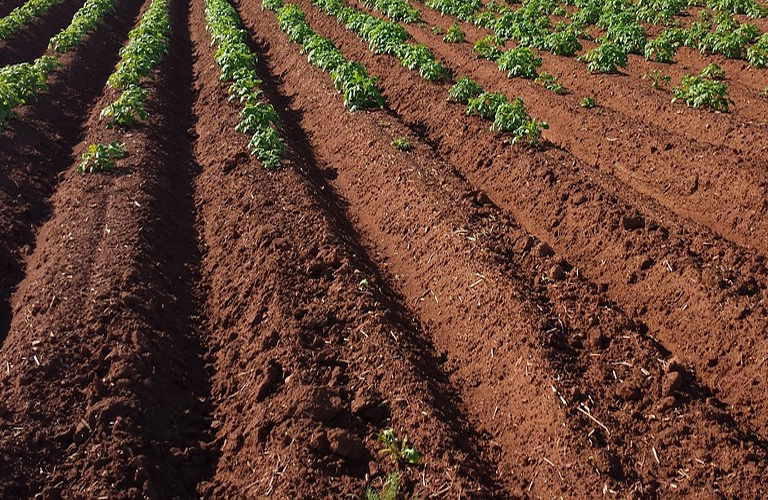We will mention the three basic variations of soils, according to their variation in mechanical texture, which the home gardener is most likely to encounter.
What Soil Does
Healthy soil gives us clean air and water, bountiful crops and forests, productive grazing lands, diverse wildlife, and beautiful landscapes. Soil does all this by performing five essential functions:
REGULATING WATER - Soil helps control where rain, snowmelt, and irrigation water goes. Water and dissolved solutes flow over the land or into and through the soil.
SUSTAINING PLANT AND ANIMAL LIFE - The diversity and productivity of living things depends on soil.
FILTERING AND BUFFERING POTENTIAL POLLUTANTS - The minerals and microbes in soil are responsible for filtering, buffering, degrading, immobilizing, and detoxifying organic and inorganic materials, including industrial and municipal by-products and atmospheric deposits.
CYCLING NUTRIENTS - Carbon, nitrogen, phosphorus, and many other nutrients are stored, transformed, and cycled in the soil.
PHYSICAL STABILITY AND SUPPORT - Soil structure provides a medium for plant roots. Soils also provide support for human structures and protection for archeological treasures.
Related Info & Articles:

Rain and irrigation are not the only ways to replace soil moisture. If the soil body is deep, water will gradually come up from below the root zone by capillarity. Capillarity works by the very same force of adhesion that makes moisture stick to a soil particle. A column of water in a vertical tube (like a thin straw) adheres to the tube's inner surfaces. This adhesion tends to lift the edges of the column of water. As the tube's diameter becomes smaller the amount of lift becomes greater. Soil particles form interconnected pores that allow an inefficient capillary flow, recharging dry soil above. However, the drier soil becomes, the less effective capillary flow becomes. That is why a thoroughly desiccated surface layer only a few inches thick acts as a powerful mulch. Read more...









